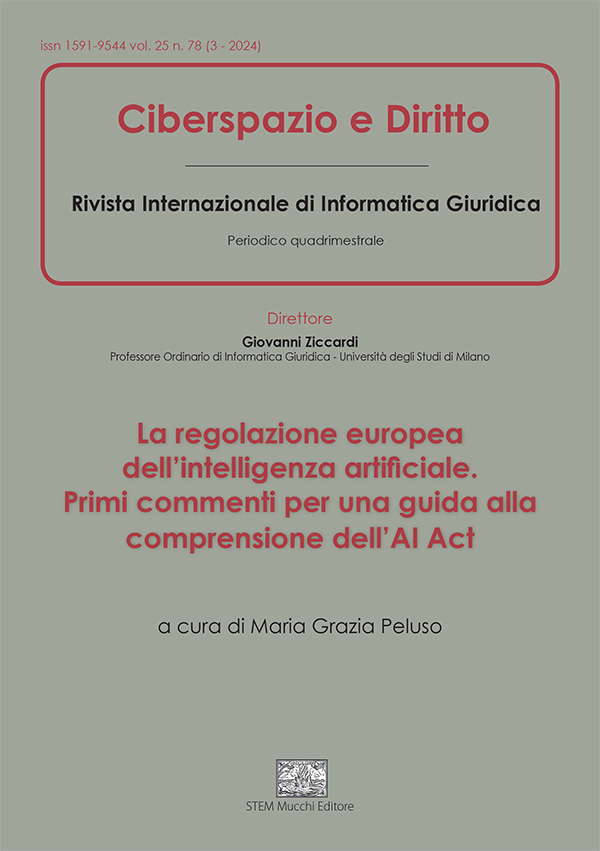L’Artificial Intelligence Act è entrato in vigore il 1° agosto del 2024 e rappresenta indubbiamente uno spartiacque, poiché è il primo atto legislativo al mondo che regolamenti compiutamente l’IA. Questo articolo suddividerà il proprio percorso argomentativo in tre macro-sezioni: in primis, si esporranno le caratteristiche essenziali dell’AI Act, ovverosia la sua ratio, la natura giuridica e il percorso che ha portato alla sua approvazione definitiva; in secundis, si analizzerà il c.d. risk-based approach (e le modalità attuative dello stesso), il quale risulta essere uno dei principali punti di forza di tale impianto normativo; infine, volendo assumere una visione complessiva, si osserverà il sistema di governance e le annesse sanzioni erogabili dalle autorità competenti in caso di violazioni del Regolamento. La tesi a cui si vuole accedere è quella per cui l’intero impianto normativo dell’AI Act è intimamente legato al momento sanzionatorio; pertanto, il risk-based approach e specialmente la governance, per consentire una effettiva capacità deterrente, dovranno essere attuati prevedendo una autorità nazionale competente quanto più autonoma e indipendente.
The Artificial Intelligence Act came into force on 1 August 2024 and undoubtedly represents a watershed, as it is the first piece of legislation in the world to fully regulate AI. This article will subdivide its argumentation into three macro-areas: firstly, the essential characteristics of the AI Act will be outlined, i.e. its ratio, legal nature and the path followed for its final approval; secondly, we will analyse the so-called risk-based approach (and the ways in which it is implemented), which is one of the main strengths of this regulatory framework; finally, wanting to take an overall view, we will look at the governance system and the related sanctions that can be imposed by the competent authorities in the event of violations of the regulation. The thesis is that the entire regulatory framework of the AI Act is intimately connected to the sanctioning moment, therefore the risk-based approach and especially the governance, in order to allow for an effective deterrent capacity, will have to be implemented by providing for a national competent authority that is as autonomous and independent as possible.

